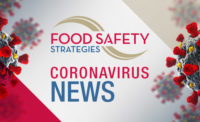From Crisis to Culture: Moving from COVID Crisis Response to Implementing a “COVID-19 Culture”

The threat of coronavirus disease (COVID-19) took center stage in the world’s theater, seemingly overnight. Hospitals, schools, airlines, and industries of all types scrambled to react to the rapidly changing dynamics of SARS-CoV-2, the virus that causes COVID-19. Federal, state, and local agencies issued rapid-fire guidance as this virus evolved from an epidemic to a global pandemic.
Soon after, some agencies identified the need to revise and reissue certain recommendations, as more information was obtained through epidemiological data and scientific research and modeling. Add in presidential executive orders, state shelter-in-place orders, and even some local ordinances, and the best one could do was to react and respond to this ever-changing crisis.
Today, we see that COVID-19 isn’t a blip on the radar screen. We are many months away from proven treatments and possibly years away from an approved and widely adopted, effective vaccine. As such, we enter the stage where we move from reaction to proactive planning to mitigate and manage risk in the workplace, communities, schools, public spaces and events, and beyond.
Enter the era of the “new normal.”
The “New Normal”
What does the COVID-19 “new normal” look like? It is still challenging to define, much less predict. Applicable guidance and the realities of the serious adverse health consequences of this virus reveal a specific need for the identification and implementation of COVID-19 control strategies and associated monitoring, verification, corrective actions, training, and documentation. The new normal also prompts the need to enhance a “COVID-19 culture,” akin to the foundation laid by food safety culture principles.
This article endeavors to provide a high-level summary of these two needs.
What Are COVID Control Strategies?
The U.S. Food and Drug Administration (FDA), U.S. Centers for Disease Control and Prevention (CDC), and other agencies have laid out a fairly clear set of strategies that are important to minimize the risk of COVID-19 transmission between people in food processing facilities. The long-term challenge will be consistent implementation and documentation. Hazard Analysis and Critical Control Points and the Food Safety Modernization Act (FSMA)’s Preventive Controls rules provide a framework for how to approach developing a COVID-19 control program.
The Occupational Safety and Health Administration, FDA, and some states appear to require a reopening plan in writing. Required or not, key benefits of a formal written plan will be not only improved control of COVID-19 but also reduced legal liability exposure. Given the unpredictability of future litigation, written documentation of procedures and verification will be essential.
Leveraging the requirements of the food safety plan as a framework for a COVID-19 preventive controls plan will greatly aid in development and implementation, as food industry staff should recognize it as a familiar process and framework.
 Table 1 contains a partial list of key parallels between FSMA’s food safety plan requirements and COVID-19 mitigation plan needs.
Table 1 contains a partial list of key parallels between FSMA’s food safety plan requirements and COVID-19 mitigation plan needs.
By way of additional detail, verification activities should reflect a similar approach to your food safety plan, that is, the verification activities should be identified in your plan and documented. For example, verification of social distancing could be visual verification with a checklist, similar to what is done for visual verification of sanitation.[1] Some companies are even looking at implementing sophisticated electronic systems to track proximity between people. At a minimum, a record should be kept to prove that you are doing what you said you were going to do in your COVID-19 plan.
In sum, FSMA’s preventive controls, coupled with copious guidance from federal agencies, state and local departments of health, and sector-specific associations, pave the way for food companies to develop a COVID-19 control plan. Now that we have a road map, how do we get our employees to buckle their seat belts and drive our plans forward?
A culture of compliance will be crucial, or companies may crash along the way.
Food Safety Culture: A Close Cousin to COVID-19 Culture Building
Since COVID-19 is a new risk, especially compared with the need to control pathogenic micro-organisms such as Listeria, how do companies develop a culture that comprehensively understands the seriousness of this virus and the importance of adhering to ongoing procedures meant to increase the safety of our workforce?
We can apply the learnings from the significant work done in the area of food safety culture to enhancing a
COVID-19 culture.
Culture, whether corporate, food safety, university campus culture, etc., is a cross-functional job. Yet many organizations can find it more challenging to implement COVID-19 controls than other program controls such as food safety or internal audit controls. For some food companies, the COVID-19 team often has a similar composition to a food safety team, with the head of food safety, the CFO, legal counsel, and/or operations at the helm of the decision-making process. These roles tend to rely more on hard science—for example, microbiology, accounting, statistical process control, or the precise nature of laws or regulation. Conversely, organizational culture is based on behavioral science.
Organizational culture is widely studied in academic business and management programs. As such, there are many similar working definitions. One definition, as follows, sheds light on the need to influence beliefs to effectuate a mature COVID-19 culture: “Culture is a model of norms, values, beliefs, and attitudes, which affect organizational behavior.”[2]
Organizational culture, as applied to the food industry, is often twofold. There is the corporate culture—the way management and employees interact, the use of technology, the level of risk the enterprise is willing to take, etc. Then there is food safety culture, specific to how the company integrates, supports, and provides resources for food safety, and the overall adoption of food safety as everyone’s responsibility.
Significant research conducted in the last decade in food safety culture reveals parallels with creating a strong COVID-19 culture. As many know, the Global Food Safety Initiative (GFSI), a private organization founded by major global retailers, has established a set of food safety-related standards by which to measure manufacturers, primary producers, and other industry sectors.
GFSI defines food safety culture as “the shared values, beliefs, and norms that affect mind-set and behavior toward food safety in, across, and throughout an organization.”[3]
It is clear that in contrast to a law, regulation, verifiable scientific result, or proven accounting algorithm, culture draws its power from beliefs and values as fundamental as doing the right thing when no one is watching.
How can companies positively influence their COVID-19 culture? Some companies are having contests focused on rewarding compliance; others are providing transportation assistance to those who typically take public transit to and from work. There are myriad creative initiatives in place in many companies. Whatever your company selects, realize that some of these attempts will be trial and error, requiring some level of course correction.
Two additional implementation tips are provided below.
Leveraging the ABCs of procedural implementation and maturity models is intended to help you start driving your COVID-19 culture in the right direction.
1. Don’t Forget Your ABCs
Just follow the ABCs. Sounds so easy, right? It is a simple but often overlooked approach to effectuating change in an organization. In simple terms, the model is:
A = Accountability. Accountability’s antecedent is awareness. Assigning responsibility to employees to display particular behavior or complete specific tasks as part of their job descriptions requires the employer to identify expectations and inform employees in clear, easy-to-understand terms what is expected and what the consequences are for noncompliance.
B = Behavior. Only when the steps above have been taken and employees are aware of the behaviors required should employers expect to see a shift in behavior.
C = Consequences. If the elements of accountability and information sharing are performed and the desired behavior does not follow, having clearly defined consequences for inaction or noncompliance is important to levy disciplinary actions.
We all know COVID-19 is about as serious as it gets. Now we need to ensure our policies, procedures, and mitigation strategies reflect a comparable level of seriousness and attention in our daily operations.
2. Maturity Models
Maturity models are becoming more widely used tools to assess various aspects of an organization’s culture. In this context, maturity refers to an organization’s capacity to ensure that workplace culture is carefully aligned with values and beliefs of the employees and the mission and values of the organization, and can systematically sustain that positive culture over time to achieve identified behaviors and outcomes that will help make the organization successful.
Maturity models come in various forms and formats. The primary reason to use a maturity model is to assess your current state (where you are now) and identify the desired future state (your intended destination). These are useful tools to help you navigate the inevitable bumps and detours on your way to ongoing, systematic COVID-19 controls.
These models assume a natural progression reflecting human intuition, starting with doubt or complete denial, moving to reaction, then to some level of proactive quest for knowledge, to empowered and predictive behavior, ultimately arriving at a systematic internalization of the desired behaviors and outcomes.
 As an example, Table 2 is a portion of a comprehensive maturity model for COVID-19 control strategies. Ideally, each company will identify its own control strategies and map each against a set of predetermined levels, similar to the approach in the table.
As an example, Table 2 is a portion of a comprehensive maturity model for COVID-19 control strategies. Ideally, each company will identify its own control strategies and map each against a set of predetermined levels, similar to the approach in the table.
Summary
Food companies are encouraged to create a written COVID-19 control plan by identifying the risks and implementing mitigation controls, with procedures for monitoring, verification, corrective actions, and procedures that comply with applicable laws, regulations, and record-retention requirements. Assessing your COVID-19 culture and implementing efforts to enhance it through using simple strategies such as the ABCs or more comprehensive maturity models are useful tips to help support your COVID-19 control program.
References
1. instituteforfoodsafety.cornell.edu/sites/instituteforfoodsafety.cornell.edu/files/shared/social-distancing-verification-checklist-05122020.xlsx.
2. Aktas, E., et al. 2011. “The Effect of Organizational Culture on Organizational Efficiency: The Moderating Role of Organizational Environment and CEO Values.” Procedia Social and Behavioral Sciences 24:1560–1573.
3. mygfsi.com/wp-content/uploads/2019/09/GFSI-Food-Safety-Culture-Full.pdf.
Melanie Neumann, J.D., M.Sc., is the principal of Neumann Risk Services and serves as the EVP and General Counsel of Matrix Sciences.
Looking for a reprint of this article?
From high-res PDFs to custom plaques, order your copy today!






